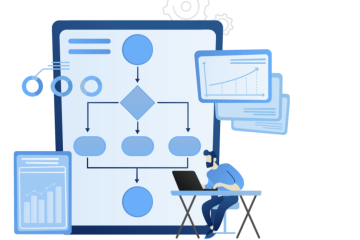
October 20, 2023
Creating a website is not just about designing and placing information online. It’s a process that also requires attention to detail and optimization. One of the most important aspects of web development is considering SEO (search engine optimization). In this article, we will explore why SEO is so important and what key points to consider when creating your website.
Improving Visibility in Search Results
One of the primary goals of a website is to attract an audience from search engines like Google. To have your site appear in the top 10 search results for relevant queries, you need to consider SEO nuances from the early stages of site development. A proper SEO strategy starts with researching your target audience, auditing competitors, finding suitable keywords, and building the right structure for your resource. Only by collaborating with an SEO specialist can you create a truly high-quality website.
Enhancing User Experience
SEO is not just about keywords, research, and meta tags. It also includes optimizing page load speed, responsive design for mobile devices, and overall site navigation. All these aspects directly impact the user experience. Fast page loading and user-friendly navigation make your site more appealing to visitors.
Content
For successful competition in the top 10, a site should not only have the right structure and technical health but also contain high-quality and useful information for users. An SEO specialist can provide detailed recommendations on the content for your future website, including the word count for each page.
Image Optimization
Images are a crucial part of a website, but they can slow down its loading if they’re not properly optimized. Proper image compression and the use of suitable alternative text can help improve SEO and the user experience.
External and Internal Links
Links play a significant role in SEO. External links from authoritative sites can enhance your site’s reputation, while internal links help distribute link authority within your site and make navigation more understandable and convenient for users. Building internal linking is a crucial consideration during site development. External links assist in promoting an already established and functioning website. They are used to build the reputation of your resource in search networks and gain trust from search engines.
Analysis and Improvement
Creating a website is just the beginning of the process. After launch, it’s essential to continually analyze its performance, monitor changes in search algorithms, and implement appropriate improvements. SEO requires ongoing work to keep the site current and competitive. Once search engines index your site, it it gets ranked, and monitoring various details, such as position in search results, traffic sources and quality, user behavior, and more, becomes essential.
An in-house SEO specialist can help track the technical state of the site after development, plan further promotion and content creation, and analyze statistics. However, if you’re not ready to hire such a specialist, you can always turn to SEO audits as a one-time service. These audits identify all site issues and weaknesses and provide detailed recommendations for their correction.
Key Points
In conclusion, let’s recap several essential points to consider before starting website development:
- Audience research: Understand your target audience’s needs and preferences to create a site that attracts and genuinely benefits them.
- Keyword research: Carefully select keywords and incorporate them into your content to compete for top positions in search results.
- User-friendliness: Ensure your website works efficiently, loads quickly, and is mobile-friendly.
- Link structure: Plan a user-friendly navigation system and internal linking structure.
- Monitoring results: Continuously track site statistics and maintain its technical condition.
- Ongoing development: Create new content, publish fresh materials, and keep your website up-to-date to make your SEO journey truly engaging.





